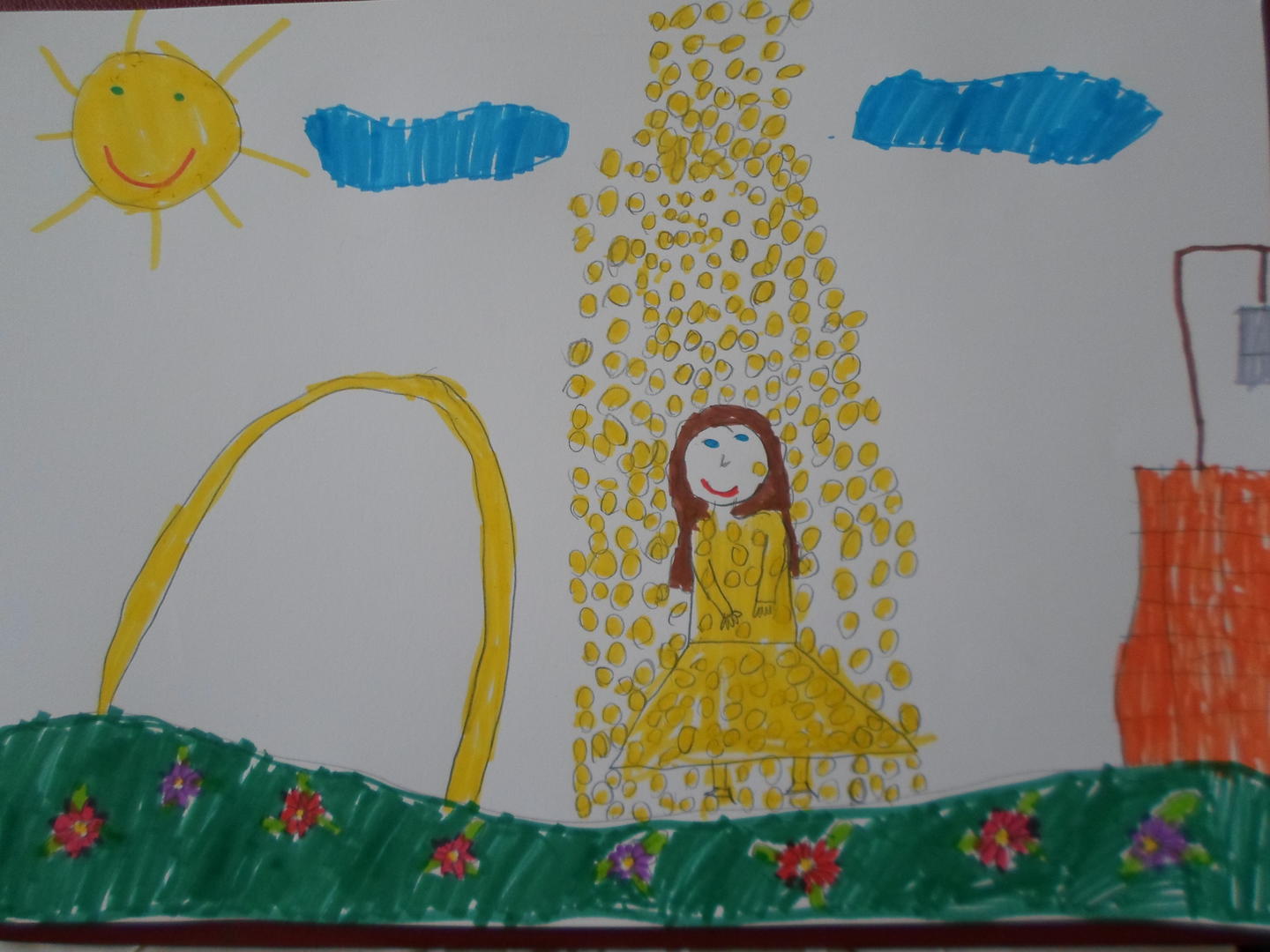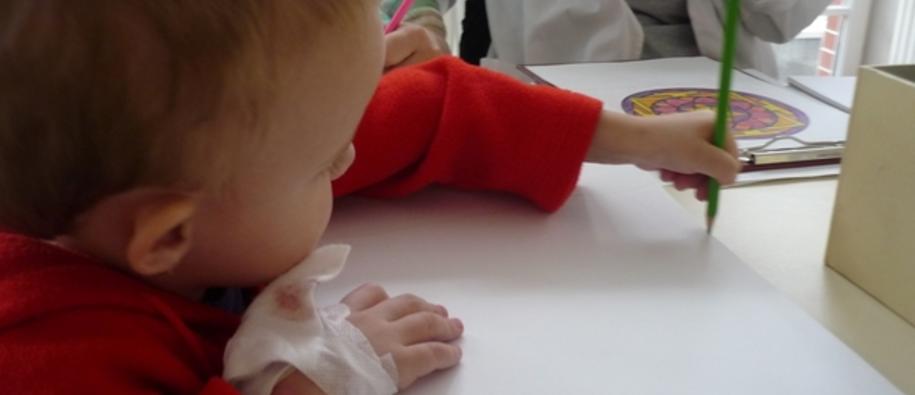Every year, hundreds of Hungarian children are diagnosed with chronic diseases like cancer, diabetes or stress disorders. Treatment can be long and painful, often requiring prolonged periods of hospitalisation, which puts great strain on the children and their families alike. Parents sometimes have to travel long distances to spend time with their children – difficult in the best of circumstances but even more so for those families from deprived social backgrounds.
To ease the burden for the children and their families going through hard times, the Smile Foundation, a Hungarian NGO, offers free-of-charge art and story-telling therapy for children suffering from chronic diseases.
Helena Varga, the organisation’s project manager, is aware that a large gap exists between the actual needs and the services on offer:
“In general, medical institutions do not have sufficient capacity and financial resources to treat the psychological aspects of the illness,” she says.
For the NGO itself the support has also been most welcome. The on-going economic crisis has hit the sector hard with donations and business support greatly reduced. For many NGOs, including the Smile Foundation, it has been difficult to sustain even its most basic activities.
To strengthen the Hungarian civil society and to enhance social justice, Iceland, Liechtenstein and Norway contribute more than €13.4 million through the NGO programme.
Overcoming difficulties
The aim of the project is to help children with chronic diseases to cope better with the difficulties associated with their illness. Some therapy sessions are group-based, others individual. The sessions take place at the Paediatric Haematology and Oncology Department of the Hospital of the Medical Schoolin in Debrecen and the Diabetes and Endocrinology Department of the Hospital of the Medical Schoolin in Pécs.
The therapy is always tailored to the child’s illness and condition and attended by a clinical psychologist and an art therapist. Two arts therapists are based in Debrecen and two in Pécs. Varga puts great emphasis on only using professional therapists in the sessions:
“The therapists have to be very flexible and creative with the methods and techniques applied. The children’s condition can change very quickly. Therefore we do not use volunteers in this specific field, since the work requires special skills and substantial professional experience,” she explains.
The child’s participation in the therapy is decided in close cooperation with the doctors and psychologists at the hospitals. After the mapping, the child selects a tale for the therapy. The tales are normally old Hungarian folk tales. The therapist tells the tale while the child expresses him- or herself through drawing, painting or playing music. The tales help to stimulate the children’s imagination, to open up and express their thoughts and fears more freely.
Judit Miholecz has worked more than two years for the Smile Foundation at the Oncology Department of the Hospital of the Medical School in Debrecen. She points out that the objective is to provide the children with a positive experience.
“In our therapy sessions we try to relieve their fears and reduce the symptoms stemming from isolation,” she says.
Lasting results
Since the project started up in September 2013, more than 30 therapy sessions have been held, reaching out to 96 children. By the end of the project in June 2014, the Smile Foundation aims to have given 84 sessions reaching at least 160 children in total. Some children take part in just one or two sessions, others for weeks and months, depending on their illness. As each session is documented, the Smile Foundation can closely monitor the development of the child and adapt new methods and techniques. Close interaction with the child’s parents is a special priority:
“We try to involve as many parents as we can and we have received a lot of positive feedback. Many children continue drawing and painting and many parents use the techniques after the child has left the hospital,” Varga tells.
The Smile Foundation has previously published a book for the Hungarian audience on their techniques, based on their experiences. Vargas maintains that the short-term aim is to uphold the activities at the present level, but she hopes to be able to expand these programmes in the future.
“It is important that the children with chronic diseases realise that they are not alone,” she ends.
About the project
Iceland, Liechtenstein and Norway have provided €9 622 to this project.
Read more about the project here
Read more about the Hungarian NGO programme here
Visit our project portal for more information on project in Hungary and the other beneficiary states

